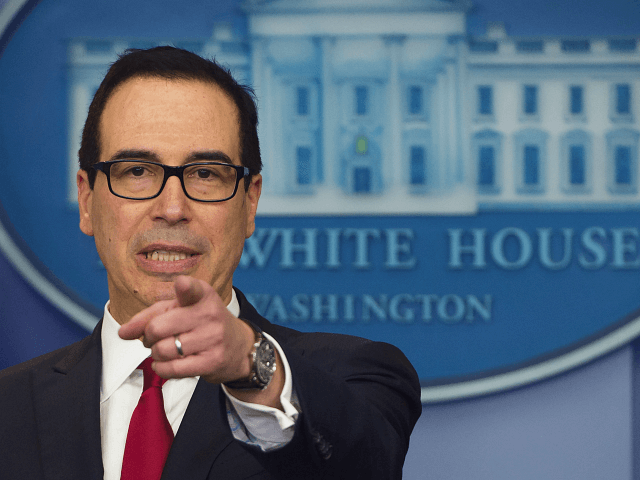DO A SEARCH FOR FIENSTEIN AND HER RED CHINESE PAYMASTERS!
Chinese Imports Flood California Ports as U.S. Trade Deficit Hits 14-Year High

Imported goods from China are flooding ports in California as the United States trade deficit hits a 14-year high.
A report by NPR reveals the extent to which imports from China are pouring into California ports. At the same time, the U.S. trade deficit has jumped to its highest since August 2006 at $68.1 billion and the U.S.-China trade deficit is at its highest in two years at $44.9 billion.
NPR reports:
SCOTT HORSLEY, BYLINE: To say the U.S. is buying a boatload of stuff from Asia is an understatement. Right now, there are 30 boatloads anchored off the coast of Los Angeles, often waiting for days to make their way into port. Cargo traffic at the port of Los Angeles was 22% higher in November than it was a year ago. And even though Christmas has since come and gone, the spike in cargo shows no sign of letting up. [Emphasis added]
SANNE MANDERS: This is an enormous surge. This is literally a tsunami of freight coming into the U.S. [Emphasis added]
HORSLEY: Sanne Manders is chief operating officer for the freight management company Flexport. He says all those hundreds of thousands of containers coming into the country, mostly from China, are straining the transportation network. [Emphasis added]
Gov. Gavin Newsom (D-CA) has cut deals with Chinese corporations, reportedly with links to the Chinese Communist Party, to import N95 masks. In June 2020, for instance, Newsom entered into a deal with the Chinese corporation BYD to get hundreds of millions of N95 masks to the state of California.
As noted by the American Manufacturing Alliance, Forbes, and Vice, BYD is considered heavily dependent on the Chinese government for subsidies. Documents obtained by Judicial Watch allege BYD’s close ties to the Chinese government.
Former Trump administration official Richard Grenell called out Newsom for cutting deals with the Chinese government, writing:
Some of those ships coming from China are filled with masks that @GavinNewsom bought from the CCP when he could have bought them from California manufacturers instead.
And every reporter in Sacramento should be covering this scandal!https://t.co/QexgcYQuvd https://t.co/moAhE8tNBc
— Richard Grenell (@RichardGrenell) January 7, 2021
Decades of free trade consensus in Washington, D.C., has ensured China’s dominance in manufacturing sectors and kept the U.S. reliant on cheap imported Chinese goods.
Since 2001, U.S. free trade with China has eliminated at least 3.4 million American jobs. In 1985, before China entered the World Trade Organization (WTO) and before the U.S. normalized trade relations with China, the U.S. trade deficit with China totaled $6 billion. In 2019, the U.S. trade deficit with China totaled more than $345 billion.
John Binder is a reporter for Breitbart News. Follow him on Twitter at @JxhnBinder.
NYSE Says China Telecom Delisting Is Back On

The New York Stock Exchange has reversed its decision to scrap plans to delist three Chinese telecommunications behemoths.
In other words, they are delisting companies after all.
In a head-spinning reversal of its earlier reversal, the exchange said Wednesday that it will go ahead with plans announced last week to delist China Telecom, China Mobile, and China Unicorn.
On Monday, the NYSE said it was abandoning the delisting plan after consultation with regulators, prompting outrage from China hawks, surprising many in the Trump administration, and reportedly attracting a behind-the-scenes rebuke from Treasury Secretary Steven Mnuchin.
The initial plan to delist had been announced just last week. It followed an executive order signed by President Donald Trump baring American companies and individuals from investing in firms that aid the Chinese military.
The NYSE said on Wednesday that the latest decision to delist followed “new specific guidance received January 5” from the Trump administration.
No comments:
Post a Comment